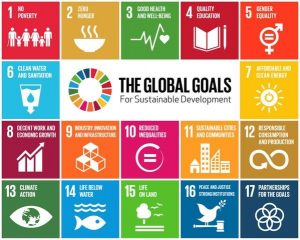
April 18, 2019//-Without adequate financing, the best intentions of the global community expressed in the Sustainable Development Goals (SDGs) will remain beyond reach.
Recent setbacks in financing for development should therefore focus policymakers’ attention on the need for decisive national strategies so these best intentions might be realized.
Harnessing the necessary resources could be achieved through a combination of revenue mobilization, attracting private finance, and supporting financial sector development. Policy makers will need to engage in collective action and practice a new multilateralism in support of global goals.
A new UN study, prepared with significant contributions by the IMF, the World Bank Group, the World Trade Organization, the United Nations Development Program and other UN agencies, takes a deep dive into how countries and the international community are faring in mobilizing the needed financing.
The financing needs are not small change—an IMF study earlier this year estimated additional annual spending needs by 2030 would be $2.6 trillion in low-income and emerging markets for the big-ticket SDGs delivering education, health, power, roads, water and sanitation to growing populations. The financing challenge is particularly large in low-income and fragile states given their low starting point, rapid population growth, and often weak growth trajectory accounting for one-fifth of the total financing needs.
While the financing challenges are large, they are not overwhelming for most countries.
The UN report also notes that some recent developments may make mobilizing financing more difficult. Global growth has likely peaked, trade restrictions are intensifying, some emerging markets are experiencing capital flow reversals, and debt risks are rising with about thirty low-income countries at a high risk of debt distress or in debt distress. We are indeed at a delicate moment for the global economy as the IMF Managing Director remarked earlier this month.
Meeting the financing challenge
The Financing for Sustainable Development Report makes over 40 specific recommendations to UN member states to better align financing with investments in the sustainable development goals. Four proposals merit particular attention:
- Develop a financing framework. Financing is often the weakest part of national SDG plans: a recent study showed that over three-quarters of 107 national plans do not contain costings or financing details. The report makes concrete recommendations on how to operationalize a financing framework and illustrates how some countries developed plans identifying both public and private flows.
- Medium-term revenue strategies. The report recommends building a national consensus for medium-term revenue strategies that can support reforms through the political cycle by highlighting the link between additional revenues and effective and equitable public services. Indonesia provides a good example of an ambitious revenue strategy that aims to raise revenue from 10 to 15 percent of GDP over the medium term (explained in this IMF book ). Revenue strategies may be bolstered by global coordination on international corporate tax reform.
- Actions to support debt sustainability. An in-depth discussion of debt risks provides a rich menu of actions to help countries spot vulnerabilities early on, and better manage their debt. The report highlights that all debt crisis situations are different and discusses ongoing efforts and challenges for debt-restructuring in the Gambia, Republic of Congo, and Mozambique.
- Prepare for future crises. Even the best laid plans, strategies, and tools may not prepare developing countries adequately for future financial crises and spillovers from advanced economies. The report reiterates the importance of ensuring the adequacy and comprehensiveness of the global financial safety net, including through the ongoing review of IMF financing arrangements.
While the financing challenges are large, they are not overwhelming for most countries. Particularly strong efforts will be needed to move the needle in Africa and parts of the Middle East, with national policies to support SDG investments, and international cooperation to find solutions to new and emerging challenges. The Financing for Sustainable Development Report makes an important contribution to identifying necessary actions.
By Chris Lane, IMF blog


